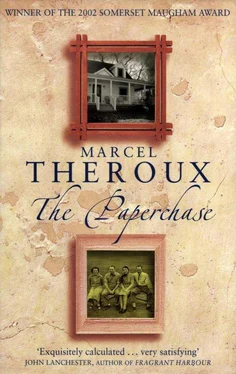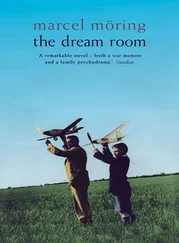‘Who the devil …?’ he began to say.
‘Mycroft Holmes.’ I extended my hand to him. ‘We box at Fernshaw’s together. I never expected to encounter a friend so far east. You work here, I presume?’
The explanation of our acquaintance and my use of the word ‘friend’ appeared to set him at his ease.
‘Well,’ he said, gruffly, ‘I’d wager long odds against this encounter. What brings you here?’
‘A combination of business, bad luck and curiosity‚’ I said, thinking that this was a tactful way of explaining that I was visiting the unfortunate Richard Doriment, an artist of my acquaintance who was incarcerated in a lunatic asylum not far from the docks.
‘Ah,’ said he, ‘the three most powerful forces in a man’s life.’
‘You forget two more powerful,’ I said: ‘God and woman.’
‘Yes,’ he said, with an odd look. ‘There is that. ’
We fell in together and crossed London Bridge, engaging in pleasant enough conversation, until our ways parted at the Monument: his to the east, mine westwards to my lodgings.
‘You’ve come this far,’ he said. ‘Do me the honour of having your supper with me at my house.’
I must admit that even then there was something about Mundy that struck me as not altogether canny. There was a submerged malevolence, a quiet kind of anger that I found all the more unsettling for its being hidden. Still, I assented, because the pull of curiosity had always got the better part of me than the push of fear, I also had a sense that the invitation was made more for the sake of form than from a real desire to share his repast with me.
As we walked together to a house near Fenchurch Street, Mundy confirmed my suspicions, apologising in advance for the frugality of his table, and hinting that I might in fact be happier to have my supper at one of the ordinaries near his home. This only strengthened my desire to see where he lived. I told him to set his mind at rest, saying that I only ever took a cold supper in the evening myself, or sometimes a little thin soup. We drew nearer to our destination — a house of average size, none too smart from the outside, in which the Mundys occupied the upper two storeys — when he turned to me again, stopping altogether this time.
‘Holmes,’ said he, drawing his large hand down his face from his cheekbones to the tip of his chin, ‘the other thing you should know is that my wife and children are deaf — mutes. We converse in gestures.’
It was hard for me to know exactly how to respond to this. ‘Deaf from birth?’ I said.
‘Deaf from birth,’ said he, cleaning his shoes on the cast-iron scraper inside his gate.
‘Deafness is a terrible affliction,’ I said.
‘It is,’ he said; and then with a glint of pride: ‘But I consider myself lucky not to be one of those husbands who must suffer a wife’s constant prating, chattering, idleness! I have what all men want and few have: utter obedience. You’re not married yourself, Mr Holmes?’
I told him I was not.
‘You’ll want a wife for three things, Mr Holmes,’ he said. ‘Fucking, cooking and bearing children. Given those three things are of sufficient quality, the absence of speech will not, I assure you, appear to be a heavy burden.’
I was glad it was dark here, because the coarseness of his expression brought the blood to my face. We had by this time ascended the creaky interior staircase of the Mundys’ home. On entering their house I was struck by two things. The first was the heat of the fire. It was not a cold day, but the coals were piled high in the grate and burning merrily. The heat of the room was such that even far from the fire, I was uncomfortably hot in my jacket. ‘Time in the tropics thins a man’s blood, Holmes,’ Mundy said. ‘Were the fire any smaller I would be freezing to death.’
The second thing that struck me was the pungent aroma of exotic spices. This was not fully explained until we took our seats at the supper table.
The two floors which the Mundys had to themselves were furnished comfortably, but not lavishly. We sat until the meal was ready in the overheated drawing room, where the air was made more oppressive by the fumes of Mundy’s cheroots. He offered one to me which I declined.
Finally, Mrs Mundy bid us to table. It was my first sight of her, and I was surprised to see that she was as dark as a lascar, with ebony hair and skin the colour of horse chestnuts. She was a handsome woman, of some elegance, thin; silent, of course — and in all things so attentive and deferential to her husband that I felt uncomfortable on her behalf, recalling his harsh words as we stood on the threshold of his house: ‘Fucking, cooking and bearing children.’
The two Mundy children were of a colour somewhere in between that of their parents, as though the hue had been formed by the admixture of her skin to his. The younger, a boy, was three years of age; the elder, a girl of thirteen or so. Mundy did not bother introducing me to any of his family, and communicated only sporadically with his wife in gestures that sent her scurrying from the table for a dish of pickle or more ale.
The food Mrs Mundy had prepared was unlike anything I had ever eaten. It was an array of meat and vegetables in sauces served with rice, and all of such barbarous hotness that I felt as though each mouthful was taking off the skin of my tongue. It was far more highly spiced than the mild karhi served at tiffin during my time in Madras. Since there was no possibility of conversation during the meal, the chief diversion was supplied by my discomfort with the highly spiced food, which entertained Mr Mundy so much that he roared with laughter until tears ran down his cheeks.
All the way through our meal, Mrs Mundy and the two children ate silently and watchfully, their attention fixed on Mr Mundy with a keenness that seemed slightly unhealthy.
It was nearing nine o’clock when I got up to leave. Abel Mundy had retired from the table to sit by the fire and smoke another of his infernal cheroots. I told him not to trouble himself to see me out. The daughter lit me to the door with a candlestick — the staircase by that time being as black as pitch. I looked up from the street to the lighted windows of their home. Naturally, I could see nothing from where I stood on the pavement, but I imagined Abel Mundy with his glittering eyes and his deaf family around him, breathing smoke from his nostrils as though the sea-coal fire burned within him, instead of in his hearth. I swore from that moment to have nothing more to do with him, and I turned my back on that house and set off towards my own home with a shudder.
The reader will very likely wonder what on earth could bring me to such a drastic resolution after what must seem like a comical encounter with a family more remarkable for its oddness than its viciousness. But the short time I had spent observing the Mundys had been enough to inform me of the real state of marital relations in the household. It was quite clear that Abel Mundy was a wife beater.
For a number of reasons, this would not have been apparent to most visitors to the house. The style of Mrs Mundy’s dress concealed all but her face and hands, and these were unmarked. The outward signs of the abuse were very few, though apparent enough to me.
I had noticed, when she was carrying dishes between the table and the kitchen, that, while she had the use of both arms, her left elbow was carried very close to her chest, and that she winced from the effort of lifting a heavy pile of plates. This disability would at least have occasioned comment in any normal house, but here it passed without remark. Secondly, though she was, I concluded, in some pain, it struck me forcibly that she was endeavouring to conceal it from me. It occurred to me that my presence was a kind of added torment for her — but whether this was her husband’s motive for inviting me there, I could not say. The show of fortitude was a necessary charade, and I could easily guess the consequences for her if she let it slip for a moment. There is no victim more cowed than the one who conspires with her persecutor.
Читать дальше












